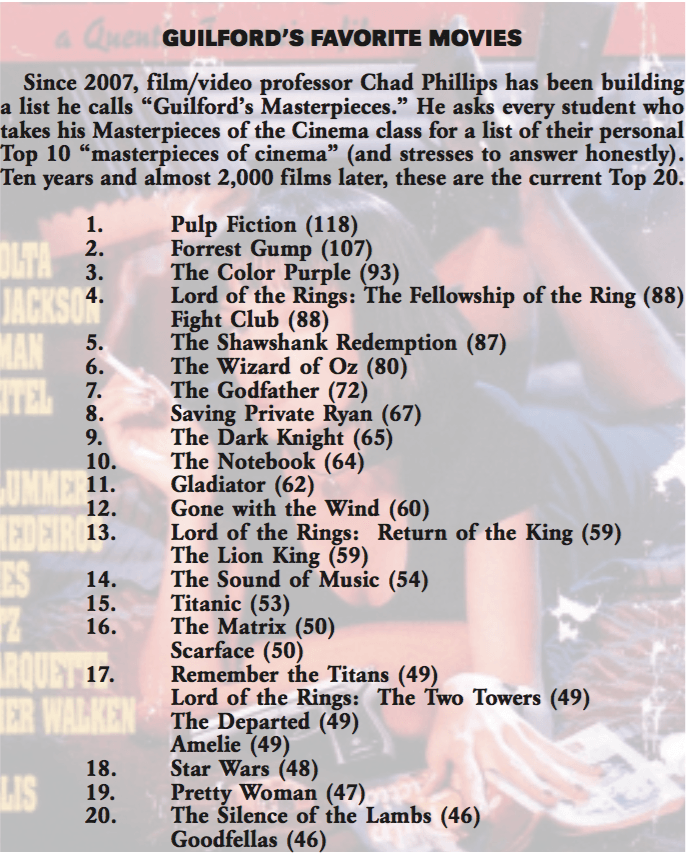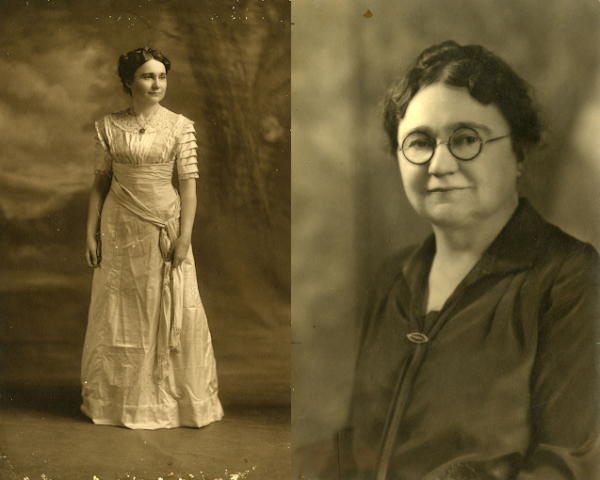“L.A. Confidential” still relevant today
Since 2007, film/video professor Chad Phillips has been building a list he calls “Guilford’s Masterpieces.” He asks every student who takes his Masterpieces of the Cinema class for a list of their personal Top 10 “masterpieces of cinema” (and stresses to answer honestly). Ten years and almost 2,000 films later, these are the current Top 20.
Despite appearances, Los Angeles in the 1950s was not all high-class café society and Hollywood glamour.
At least not in Curtis Hanson’s 1997 film “L.A. Confidential,” which follows three Los Angeles police officers: Detective Lieutenant Edmund Exley, Detective Sergeant Jack Vincennes and plainclothes officer Bud White. The trio investigates (perhaps sometimes too closely) the seedier side of the City of Angels. The film tackles corruption in more places than just on the streets.
Sept. 19 marks the 20th anniversary of this classic, and although it is more or less forgotten in the annals of pop culture, its importance is timeless. For both film enthusiasts and individuals who have been following recent news, “L.A. Confidential” still proves relevant two decades later.
The same is true for traditional film noir, centered on dramatic detective plot lines, hyper-masculine male leads and sexy femme fatales. But there is a group of movies that are not as simply defined.
Film studies honor the movie because it is a prime example of neo-noir, a subgenre of film noir. Genres are easily defined by characteristics, but not all films are easily defined by genres. Horror, action and Western flicks are usually pretty easy to label.
Subgenres, which remain important parts of modern film culture, account for these blurred lines. Some films fit easily into a specific box, but like ‘dramedies’ that feature heavy issues in a humorous way.
For instance, is it really appropriate to put “Ted” and “Dallas Buyers Club” together in the comedy box? What about “Atonement” and “Silver Linings Playbook” in drama? These types of movies require an in-between genre.
The qualities are there. There are stoically tragic men, a complex crime and a dramatic aesthetic—but still “L.A. Confidential” does not fit neatly under the umbrella of traditional film noir. It is too moral, especially with the character of Lynn Bracken. Billed as the film’s femme fatale, she is too human to really be that much of a snake.
Lynn Bracken is manipulative, cunning and a sex symbol, but she’s also sympathetic, remorseful and patient. She shows too much weakness to be the downfall of the leading men like a regular femme fatale. To categorize “L.A. Confidential” as traditional film noir would be to incorrectly define her as such.
This is only the tip of what makes “L.A. Confidential” still the chief neo-noir after all this time. But you do not have to be a genre enthusiast to appreciate the significance of the film. After all, the heart of its plot lies in the police brutality, abuse of power, gossip, drug market, misogyny and racism prevalent throughout 1950s Los Angeles, which are all still issues today across the entire United States.
15 minutes in, the film already finds a slew of Los Angeles Police Department officers whaling on a group of Hispanic men who have been brought into the station. Det. Sgt. Vincennes uses his authority to arrest people, sell their scandals and let the local gossip rag publicize them. A high-end escort service central to the story forces its women to alter their appearance to match celebrities. A botched attempt at an undercover drug buy turns fatal to the officers involved. When three black men are hastily blamed and then killed, only Det. Lt. Exley questions whether or not they were actually culpable. Unfortunately, none of these crimes are shocking.
By its 40th anniversary, the neo-noir classic will most likely still be an important part of film history. But maybe in another two decades, “L.A. Confidential” will be relevant only for how it represents genre, not current events.









